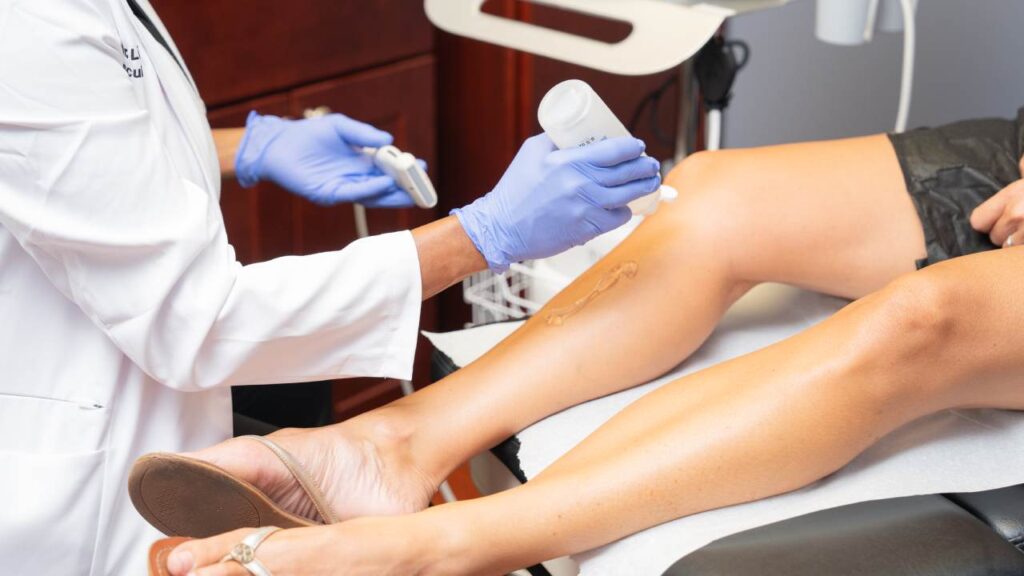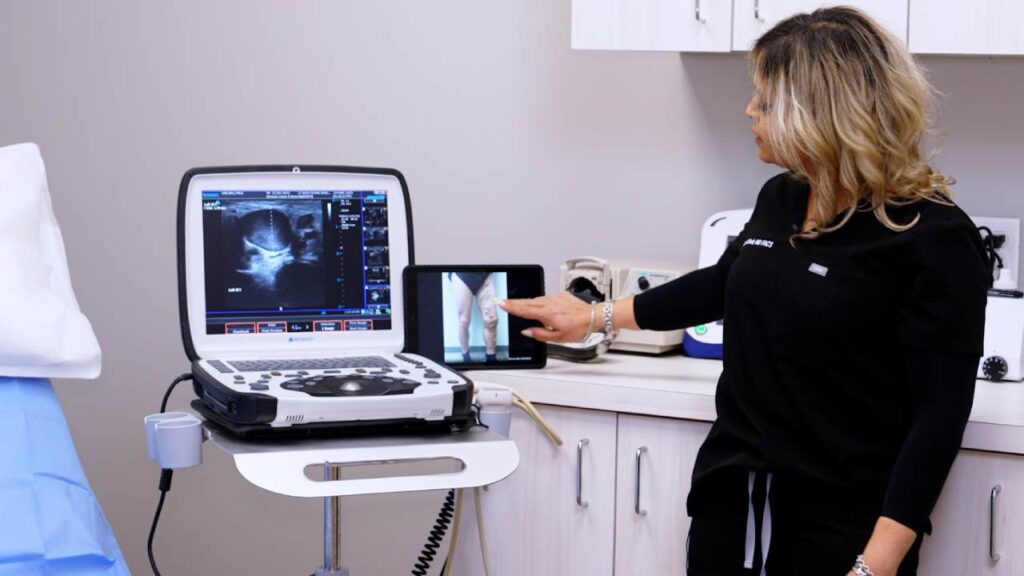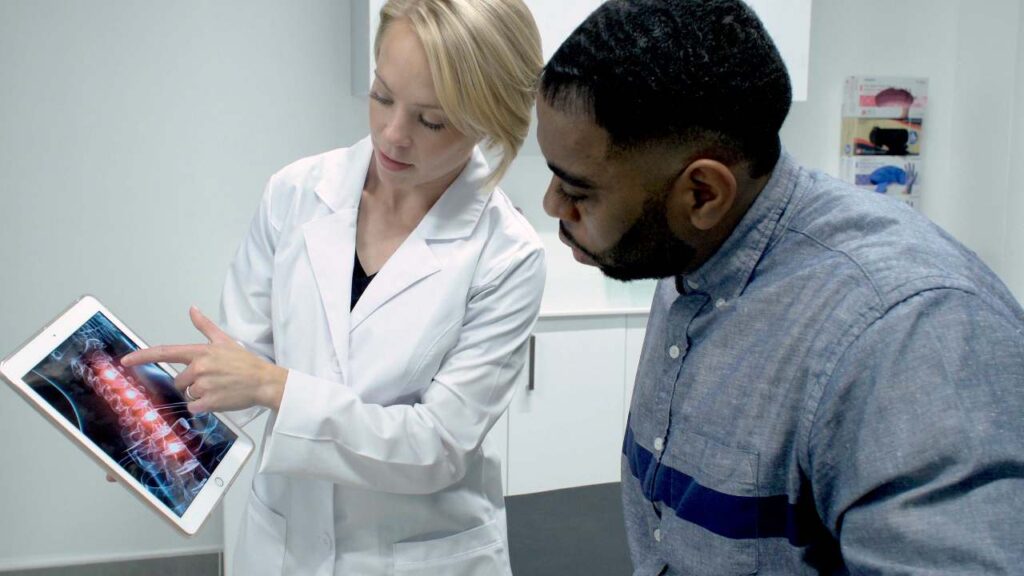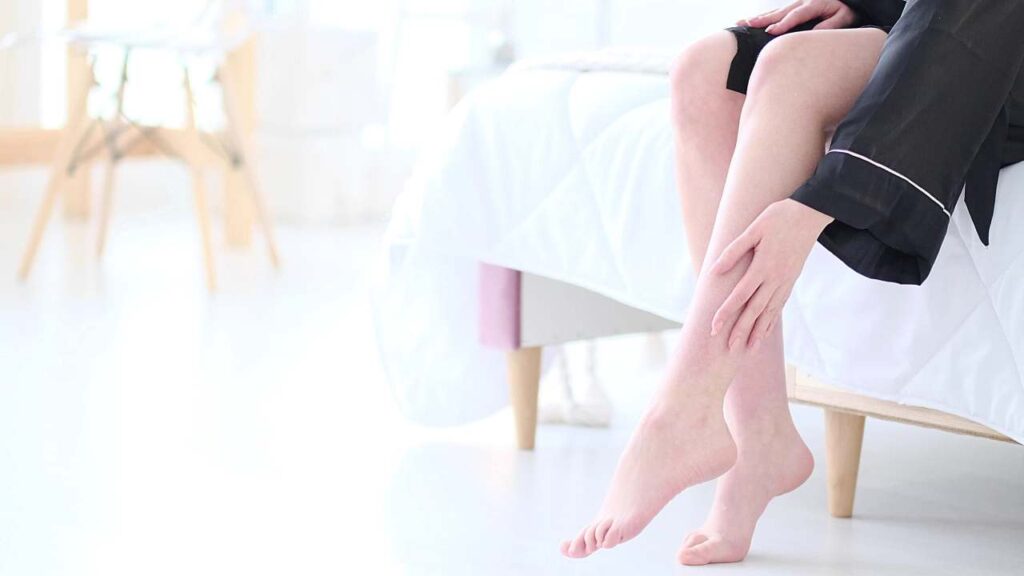If you notice spider and varicose veins on your lower limbs, or if you have aching or fatigued legs, you may have a vein disease, but a vein doctor can help make a professional diagnosis. Click HERE to make an appointment at a vein center with a specialist in venous medicine. This will help minimize damage to the veins and prevent further problems down the road.
Be sure to make an appointment at a vein center at a convenient location near you, so if you are located in New York, look for a “vein center in Midtown” for easy access and travel to your appointment.
What is Chronic Venous Insufficiency?
Healthy veins have one-way valves that direct blood towards the heart while preventing it from returning to the limbs; however, if these valves in the veins of the legs become leaky, the blood succumbs to gravity and travels backwards, pooling in veins near the feet and resulting in chronic venous insufficiency. The venous system can no longer perform its duty of sending blood to the heart, and as a result of fluid build-up, pressure on the vein walls grows over time, resulting in bulging varicose veins.
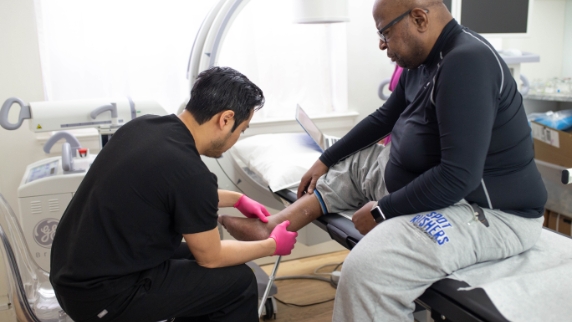
What are the signs of Chronic Venous Insufficiency?
Vein disease causes heaviness or soreness in the legs, particularly towards the end of the day if you have been active. Blood can find its way down to the legs after a long day of standing or walking, causing a lot of pressure.
Even if you’ve become accustomed to leg fatigue and swelling in the feet or ankles, as well as itchy or burning spider veins and varicose veins, recollect how your legs looked and felt five or 10 years ago. If you feel that your legs are more fatigued or achy than usual, seek treatment by contacting a vein doctor at a vein treatment center.
How is Chronic Venous Insufficiency diagnosed?
At a vein treatment center, the vein doctor will check your large and small saphenous veins for valve blockages or damages. These vein issues can cause venous reflux or venous insufficiency, which are conditions in which blood flows in the wrong direction and therefore does not sufficiently travel to all parts of the body.
Once you have been assessed by a vein specialist, he or she will be able to offer the best treatment for your specific situation. Typically, vein specialists recommend a minimally invasive surgery to repair the “leaky pipe” and seal unhealthy veins to ensure that blood flows in the proper direction. Although surgical operations were formerly the only way to treat varicose veins, modern advancements have enabled us to treat varicose and spider veins with minimally invasive techniques.
What is a Duplex Ultrasound?
When you make an appointment with a vein doctor at a reputable vein center, the vein specialist will conduct a test called a Duplex Ultrasound. This test takes the typical ultrasound one step further by incorporating Doppler, which shows the vein doctor the speed and direction of blood flow in a blood vessel. This allows them to assess if the blood is having difficulties moving through the veins, whether it is traveling in the reverse way, and whether there are veins or regions of the body that are simply not receiving enough blood. All of these symptoms point to venous insufficiency.
What happens during a Duplex Ultrasound?
This ultrasound imaging test only takes about 30 minutes and is non-invasive, as there is no radiation or injection of any medication. The process begins with application of a warm gel to the legs to allow a device called a transducer to transmit sound waves that produce images of blood vessels that show up on a computer monitor connected to the transducer
The ultrasound technician at the vein center near me will start by imaging the deep veins in the legs to make sure there are no blood clots or, in rare cases, deep venous reflux. Then they look at the saphenous veins (GSV and SSV) to see if there is blood flow in the wrong direction, which means the valves in the veins are not working. This information can help the vein doctor develop an appropriate treatment plan.
What are Compression Stockings?
Compression socks improve blood circulation by applying pressure around the ankles and feet, thus pushing more blood to the heart. Although there are many compression socks available over-the-counter or online, it’s important to get properly fitted for compression stockings by a vein doctor. Different types of compression socks apply varying levels of pressure, so getting a proper fitting from a vein doctor will help you stay safe by avoiding excess pressure on your legs if it is not necessary.
How are Compression Stockings Used for Diagnosis?
These stockings can be useful to help doctors distinguish vein disease from other causes of leg pain. For example, if a patient has significant achiness, but only a small amount of reflux on the duplex ultrasound, a vein doctor may ask the patient to wear compression stockings and ask them to report if they feel better at the end of the day when wearing stockings compared to when they don’t.
Where can I find a vein center near Midtown to get diagnostic tests for vein disease?
If you have spider veins or varicose veins, and need to determine if you have a vein disease, it is essential to set up an appointment with a specialist in venous medicine at a vein center to report your symptoms and get a professional evaluation. The doctor may recommend that you get a Duplex Ultrasound, compression socks, or both.
If you are looking for a “vein center near Midtown” you can contact us at the Vein Treatment Clinic location in New York City, conveniently located in the heart of New York in Midtown. The vein treatment center is close to Manhattan to notable landmarks such as Hudson Yard and Bryant Park. Click here for directions and check out the Vein Treatment Clinic location in New York City for vein treatment today!

